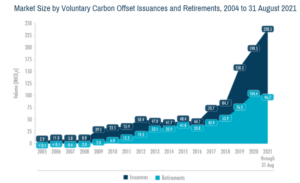Carbon Credits Ethical
In recent years, carbon credits have emerged as a major means of reducing greenhouse gas emissions. In the face of the mounting evidence of climate change, many governments around the world are implementing or considering cap-and-trade regimes. These programs set a limit on total emissions from a group of polluters and then offer companies the opportunity to buy and sell permits, or credits, for emitting up to that limit. These credits can be obtained through activities like planting trees, capturing and sequestering carbon in soil, or investing in renewable energy. While promoting economic benefits, these markets raise a number of ethical issues that need to be considered.
First, there is the issue of whether or not it’s morally acceptable to commodify the environment. Some people object to trade carbon credits pricing for both theoretical and practical reasons. Theoretically, they worry that allowing people to trade in carbon emission allowances will create property rights to the atmosphere and lead to the degradation of natural resources. Practically, they worry that charging a fee to emit carbon will crowd out moral motivations and instead simply become an incentive for companies to maximize profit by increasing their emissions.

Some also worry about the distributive justice implications of carbon trading. They point to research suggesting that carbon prices will have a more progressive distribution than taxes because wealthier individuals will spend a larger proportion of their incomes on energy-intensive consumption and less on non-essentials like fine dining and art. This can potentially lead to a greater disparity in carbon emissions between the rich and poor, which would be counterproductive to the climate change goal of mitigating climate change.
Are Carbon Credits Ethical?
Lastly, there is the question of whether or not the projects that earn carbon credits are truly environmentally effective. Forest and other bio-sequestration projects often cause leakage issues because the carbon that is reduced at one location may be reemitted to the atmosphere at another. Other types of industrial projects can also suffer from this problem if they get credit for reducing emissions at one plant but continue to produce carbon at another.
Despite these concerns, carbon trading has become an important part of the global economy and it is unlikely to disappear. However, these concerns should serve as a reminder to governments and businesses to think carefully about how the market for carbon credits is structured and how it might be used in conjunction with other regulatory and voluntary efforts to reduce emissions.
We hope this post will encourage further ethical reflection about these issues, especially since carbon trading is gaining widespread support around the world. In December, ISDA published 2022 ISDA Verified Carbon Credit Transaction Definitions and related template confirmations for spot, forward and options contracts as part of our ongoing work to address legal and ESG risks in the emerging global carbon market. You can find the full paper here.

